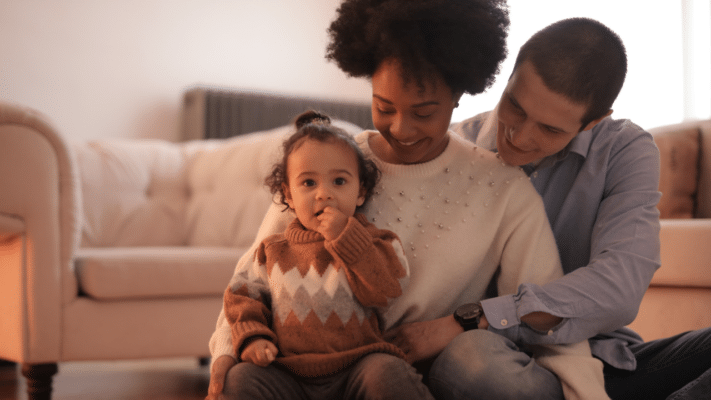Having taught in British schools in both Italy and The Netherlands, change, and how it affects children, has been a dominant and recurring theme throughout my career. Children in the international system probably face more of it than most:
- A significant number, due to their parents’ contracts with international companies, move every three to four years.
- These changes include a new country, culture and language, as well as the more common new school and new friends.
- Those left behind often say goodbye to a quarter of their class every year. This makes friendships hard to forge for the leavers and the stayers; and means class dynamics change considerably every year.
Yet it’s obviously not just those in international schools who have to deal with the challenges of uncertainty. All children face change frequently. Whether this is the regular change of class teacher at the end of an academic year, or a more significant life change like the birth of a sibling, someone important to them moving on or their parents’ divorce, providing them with coping skills is so important.
Children Adapt Easily To Change…Right?
It’s true. Some children respond well to change. Much like some adults do. They thrive on the excitement, the buzz, the challenge…whatever you like to call it…and seem to suffer no ill effects at all.
But the assumption that children adapt easily, simply because they are children, is a dangerous one.
I came across this misconception frequently in one international school where parents would place their non-English speaking five-year olds in a British school and expect them to absorb the language and fit in straight away. Concerned, after three months, they would question why their child was constantly grumpy, exhausted and STILL didn’t seem to speak much English!
Well, to understand how those five year olds might have felt, spend just a few hours in a strange environment, where you don’t speak the language and you don’t know what’s going on. Believe me, you’ll be grumpy and exhausted before long and you won’t just absorb the language (sitting in pubs in my early twenties with limited Italian taught me this).
How Not To Deal With Your Child’s Response To Change
Four years ago, my husband and I uprooted to The Netherlands with our nine-year-old twins. They were born in Rome and had never lived anywhere else. The move, though exciting, was a challenge for us all.
Our new lifestyle in The Hague brought many positive changes and we were excited about the opportunities the city, our jobs and our daughters’ school had to offer. But the daily grind of constantly being in new situations and meeting new people, was tough. It took longer to do everything – from the supermarket shop to paying for parking; finding a swimming team for the girls to getting the best wifi connection – it was all unfamiliar and therefore hard work.
Starting school was when the extent of that change really struck the girls. On the first morning, one of my bubbly, sometimes over-confident twins, grabbed my hand and whispered, “I really don’t think I can do this Mummy.” My heart lurched. The vulnerability in her eyes was immense. I knew it was a massive step for them.
They were in awe, and a little nervous, about the sheer size of their new school. They quickly noticed that they had some catching up to do on an academic level. And the realisation that they couldn’t arrange a play-date on a whim, simply because they didn’t have the friendships they had back in Rome, was especially hard.
Within a few weeks, the one who’d ironically been more confident on the first day, was having uncharacteristic outbursts of anger and began the door slamming that I wasn’t expecting until she hit her teens. When she was really upset, over a seemingly non-existent spark, I was met with a rant that she repeated often over a period of a few months: “Why did you bring us here? We’re so far away from family and friends. I miss Rome so much. And it’s all your fault.”
It was too. The move had been my idea, my dream. My husband had seen the twinkle in my eye following my interview and had fully supported me…although his heart was firmly in Rome too. The sense of responsibility was huge.
They had to be happy. All three of them. I had brought the change. I had to make it work.
I did speak to my daughter’s teacher who kindly moved her next to a new friend in class. That certainly helped. The Longing for Rome Rants were now accompanied by occasional bursts of excitement about new friendships and the fun she was having at school.
Yet, I am ashamed to admit, my emotional support for her didn’t go much further than that. The move was tough for me too. I was working hard to adapt to a new teaching job and to navigate those supermarkets and parking metres and, to be honest, I fell into the trap of: “They’re kids and they’ll settle down.”
Well, they did but the interim period was so hard. After four months in The Hague, we returned to Rome for Christmas. The silence for the twenty hours in the car on the way ‘home’ was deafening. And, although by then they were fairly used to our new life, a new phase of rants and door slamming followed. Adapting to change is tough. Re-adapting after holidays is also tough.
Four years on, The Hague is now their home and they couldn’t be happier. We were fortunate. They had lovely teachers, made good friends and thrived on being in their exciting new school.
But I look back and I feel incredibly lucky. Having recently experienced mental health difficulties, and rather belatedly learnt at the age of forty that talking through worries, stress and concerns is highly beneficial, I wish I’d paused and made the time to listen to them more.
Make Time To Talk
You see, I saw the outbursts of anger and the door slamming as excessive and dramatic. I responded to the immense vulnerability with a quick hug and a dismissive, “Don’t worry you’ll be fine.” And the Rants for Rome were met with less and less patience as time went on.
In doing so, I inadvertently taught my daughters what I’ve spent eighteen months of therapy trying to move away from. I passed on the ‘British stiff upper lip’ mentality. I conveyed the need to just ‘do’ and to plough on through, without pausing to talk, to think, to reflect. I misunderstood the need to be angry, to cry and to express the natural pain that comes from leaving your family, friends and all things familiar.
With the help of therapy, and a great deal of self-reflection, my own experiences have undoubtedly improved my parenting skills. Now I strive to ensure that:
- A vulnerable moment gets my full and sympathetic attention, plus the all-important distraction activity afterwards to avoid dwelling on the issue too long.
- A rant is met with time to calm down, followed by a hug and a chat.
- And conversations about Rome, our future here and if and when major change will take place, involve the whole family. We are all honest and open and our daughters’ opinions count as much as ours.
Helping Children Cope with Change
If you know a child who is experiencing change – from a new school to the birth of a sibling, a friend moving on to their parents’ divorce – their effect needs to be acknowledged and, if necessary, support provided. Parents, carers, family members, friends… in fact anyone who has a little human in their life… please recognize that such changes can have a huge impact on a child. By simply listening, encouraging and supporting… rather than being dismissive, judgmental or trying to offer quick-fix solutions… we can make such a difference to helping our children cope with change.
Is Your Child Facing Change?
Facing change at any time of year
Can be a moment of joy or one of fear;
Excitement about the adventure ahead,
Or worry, concern and a sense of dread.
Moving house, a different teacher or school,
Parents’ separation, any change of rules…
During these challenging and busy times,
Look out carefully for those tell-tale signs:
Outbursts of anger or unexpected tears,
More arguments than usual with you or peers;
Poor sleep or a change in appetite,
Or anything else that doesn’t feel quite right.
Create moments alone to be by their side
Listen and encourage them to confide;
Avoid solutions or judgement or ‘dry your tears’
Let them know ‘The Strong’ express their fears.
It’s natural to feel uneasy about change,
Let’s show them it’s normal, rather than strange;
Let’s teach our children to express how they feel,
For it’s the very best way to help their hearts heal.













